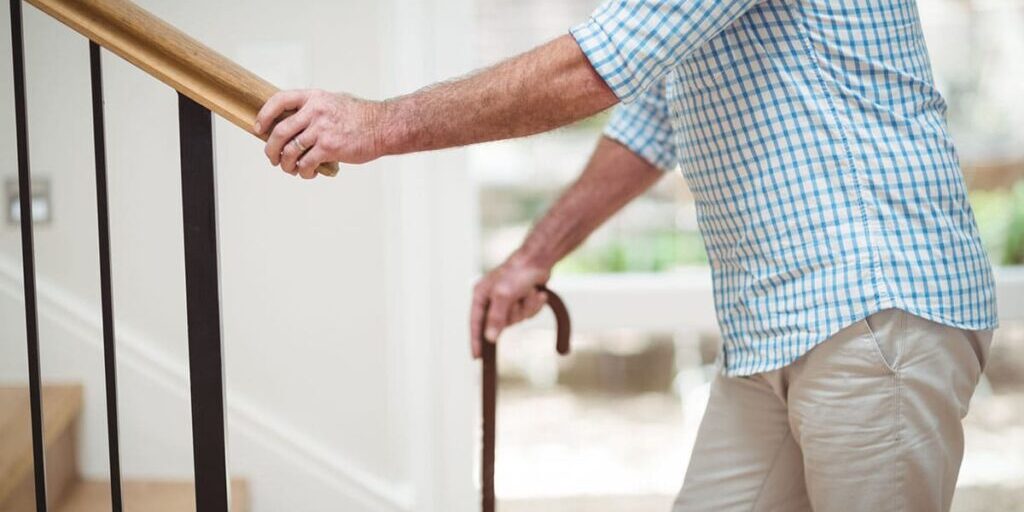
Spot the Signs: Is It Time for Senior Living for an Older Loved One?
Aging brings with it some unique challenges, the signs of which might indicate they might need a little extra help in their daily lives. While everyone ages differently, several age-related problems can make life not only harder but more dangerous for an older loved one living at home. To be prepared for the future, keep an eye out for the following clues in your older loved ones that may mean it’s time for senior living.
4 signs it may be time for senior living
#1: Mental health concerns
Every older adult worries about dementia, Alzheimer’s disease and other mental health conditions that are associated with aging. But for seniors who live alone, there are other concerns families should also be aware of. At the top of the list are loneliness and isolation which, according to the psychologytoday.com article, “Mental Health Concerns and Aging,” can cause a variety of mental health issues including anxiety, depression and cognitive decline, and may increase the risk of death from heart disease, cancer, and diabetes. Loneliness and isolation may also contribute to suicidal thoughts and substance abuse which have additional health repercussions.
Similarly, behavioral changes can also indicate it’s time for senior living. While they may result from loneliness, depression, or medications, changes in behavior are also common symptoms of dementia and Alzheimer’s disease and should trigger an assessment by a physician.
#2: Physical health problems
Failing physical health is also a well-known aspect of aging, and while it is expected to some degree, physical decline may mean the time for senior living has arrived. From diseases to injuries to acute and chronic conditions, there are many threats to physical health and safety to monitor.
One of the first problem signs to watch for is the natural loss of muscle mass which can impact balance and stamina and increase the risk of falls and accidents. According to statistics from the Centers for Disease Control and Prevention, more than 14 million adults (one in four) age 65 and older fall every year, making falls the leading cause of injury and injury-related deaths for older adults. And statistics show it’s getting worse with the age-adjusted fall death rate rising 41% from 2012 to 2021.
Other physical health concerns include diminished sight and hearing, dental problems that can impact eating and nutrition, and slower reflexes and reaction times that can increase the risk of driving accidents and mishaps.
#3: Medication mismanagement
Another very clear sign that it’s time for senior living is medication mismanagement. Since most seniors take multiple medications every day, even small or occasional mistakes can have serious consequences.
Among the most common medication mistakes is when a senior forgets to take their medications on schedule or at all. Some may also take double the dose when one is missed or take less or none if there are side effects. In other cases, a senior may forget to renew or pick up a prescription or skip them all together due to the cost. For seniors who are on controlled medications such as for pain, there is also the danger of overdose or addiction which can bring about additional mental and physical health problems. To best understand if medication mismanagement means it’s time for senior living for a loved one, check out the ncoa.org article, “Prescription Medication Misuse and Abuse Among Older Adults.”
#4: Poor personal hygiene
Another sign that it may be time for senior living is poor personal hygiene. Body odor, dirty hair, bad breath, unclean clothing, and problems associated with incontinence are all red flags that a senior can no longer care for themselves. When bathing and washing hair have become a challenge due to bathrooms without walk-in showers, doing laundry has become too physically demanding, or managing incontinence is overwhelming, seniors often do as little as possible to get by. In some cases, however, poor hygiene may also be a sign of dementia as described in the alzheimersblog.org article, “Difficult behaviors: bathing and personal hygiene.”
It’s also important to note that when personal hygiene suffers, health complications may not be far behind. According to the healthline.com article, “What Does It Mean to Have Bad Hygiene?,” the repercussions of uncleanliness include an increased risk of infection by bacteria, viruses and parasites, and regarding oral health, increased risk of tooth decay and gum disease which can affect the heart.
The senior living solution
Living with all the effects of aging is much easier and much safer in senior living where residents receive compassionate help with personal care and mobility, eat well, and reap the benefits of a full and fun social life within an accessible, safe and secure community. When it’s time for senior living, contact us to learn more about the care provided at Evolve Senior Living communities.
